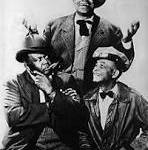Clause 1. The Migration or Importation of such Persons as any of the States now existing shall think proper to admit, shall not be prohibited by the Congress prior to the Year one thousand eight hundred and eight, but a Tax or duty may be imposed on such Importation, not exceeding ten dollars for each Person.
The Constitution of the United States is the framework upon which this country is governed. It consists of seven Articles with various clauses. There are twenty-seven Amendments, the first ten of which are considered the Bill of Rights. The Thirteenth Amendment more or less abolished slavery, “except as a punishment for a crime whereof the party shall have been duly convicted, shall exist within the United States, or any place subject to their jurisdiction.” You could make the case that prisoners have served as slaves long after the Thirteenth Amendment was ratified in 1865 but that’s not the story I’m telling today.
Clause One of Article 1, Section 9 has been quoted in full in boldface above. You won’t notice any mention of slavery. Yet, like many American laws… it’s all about slavery. In plain English, it was a ban on Congress from doing anything to stop the importation of slaves from Africa for twenty years, or from taxing slavery out of existence by keeping import fees low. Revisionist historians make it sound like the all-wise founders were planting the seeds for the ending of slavery when they were, in fact, doing the opposite. They were laying the grounds of protectionism so that domestic slavery could flourish, making Virginia slaveholders in particular who were overrepresented among the founders; rich men.
Thomas Jefferson, one of Virginia’s largest slaveowners, had been promoting the idea contained in Clause One since the 1770s. During the American Revolution (1775–1783), all the colonies had banned the Atlantic Slave Trade for differing reasons. South Carolina and Georgia resumed Atlantic trading after the war. The Slave Trade Act of 1794 made it illegal to use American ships for slave trading but did not stop foreign ships from bringing in slaves.
Jefferson’s reasons had nothing to do with ending slavery. He was protecting Virginia slaveowners who had excess slaves, trying to keep their price up compared to the foreign imports if you will, coming into America’s largest slave port in Charleston, South Carolina. Article 1, Section 9, Clause 1, was basically giving South Carolina twenty years to prepare for the possible end of it’s receiving African slaves. This was the compromise worked out with Jefferson as the price for admission to the Union.
Thomas Jefferson became President on March 4, 1801, and stayed in office until March 4, 1809. He was well prepared for the 1808 deadline after which the United States could ban the import of slaves. He introduced legislation in 1807 so that the ban could take place the first day possible, January 1, 1808. His reasoning was all about the “human rights” of the slaves. In his December 2, 1806 State of the Union Address he told the Congress:
“I congratulate you, fellow-citizens, on the approach of the period at which you may interpose your authority constitutionally, to withdraw the citizens of the United States from all further participation in those violations of human rights which have been so long continued on the unoffending inhabitants of Africa, and which the morality, the reputation, and the best interests of our country, have long been eager to proscribe.”
His words were belied by his actions because he promoted one of the most heinous acts ever committed against a people; domestic slave breeding. His plan would reward Virginia and Maryland slaveowners who generally had excess slaves. They would breed as many slaves as possible, sending them West and South to support the needs of the ever-expanding nation.
There are those like David Azerrad, Ph.D. who would tell you that under scrutiny, the Constitution isn’t pro racist and pro-slavery. In a 2015 article published byThe Heritage Foundation, he noted, “ The first references to “race” and “color” occur in the 15th Amendment’s guarantee of the right to vote, ratified in 1870.” He discussed the “three-fifths clause,” noting it doesn’t actually declare a black person worth 60% of a white person but merely refers to the allocation of Congressional seats and representation. He says that the few free blacks at the time were “on a par” with white people and could even vote in some states.
It’s true the Constitution of the United States barely mentions race and slavery. It’s also true that it planned for slavery throughout and many of the institutions of our nation like the Electoral College, are a direct response to the existence of slavery and the desire to protect it’s continued existence by giving more power to the lesser inhabited (slave-owning) states. The Constitution also gave us Article 1, Section 9: Clause 1. The foundation upon which domestic slave breeding is based; promoting both the forced pairing of some slaves and the continual rape of others.
Some historians write about Jefferson’s great desire to end slavery. They refer to an Amendment he allegedly wrote but never introduced. They speak of his plan for “gradual emancipation.” They claim the banning of the International Slave Trade was proof of his desire to end slavery. While President, others came to him with an Amendment to end slavery. His reply, “Better this be held back.” The Constitution, like Jefferson, had a chance to enact the ideals that all men were created equal and include all the people in the famous but non-inclusive “WE.” Neither thought it worthy of consideration.





 Amos & Andy
Amos & Andy